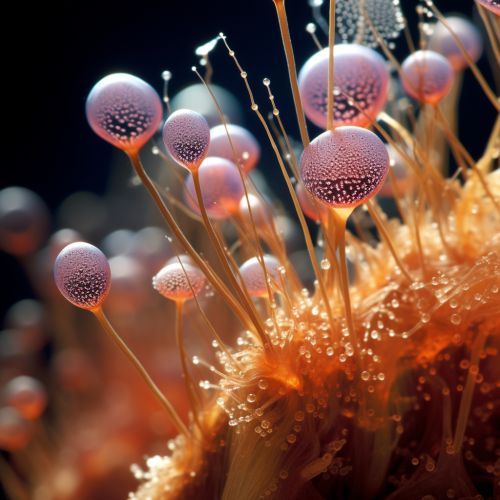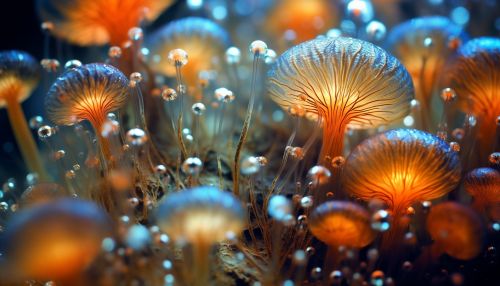Spores
Introduction
Spores are reproductive units produced by certain fungi, algae, and some bacteria and plants. They are typically single-celled and have the ability to develop into a new organism under the right conditions, representing a key stage in the life cycles of many organisms.
Characteristics of Spores
Spores are characterized by their small size, resistance to adverse environmental conditions, and potential for long-distance dispersal. They are typically unicellular, but can also be multicellular in some organisms. Spores are produced in large numbers and are often surrounded by a protective wall or coat that enhances their survival in harsh environments.


Types of Spores
There are several types of spores, each with unique characteristics and roles in the life cycles of the organisms that produce them.
Bacterial Spores
Bacterial spores, also known as endospores, are produced by certain bacteria as a survival strategy. They are highly resistant to heat, radiation, and chemicals, allowing the bacteria to survive in unfavorable conditions.
Fungal Spores
Fungal spores are produced by fungi for reproduction and dispersal. They can be produced sexually or asexually and are often carried by wind or water to new locations.
Plant Spores
Plant spores are produced by non-flowering plants, such as ferns and mosses, as part of their reproductive cycle. They are typically produced in specialized structures called sporangia.
Spore Formation
Spore formation, or sporogenesis, is the process by which spores are produced. This process varies widely among different groups of organisms but typically involves the division of a parent cell into one or more spore cells.
Spore Dispersal
Spore dispersal is a critical step in the life cycle of spore-producing organisms. It involves the movement of spores from the parent organism to a new location where they can germinate and develop into a new organism. Dispersal can occur through a variety of mechanisms, including wind, water, and animal vectors.
Spore Germination
Spore germination is the process by which a dormant spore develops into a new organism. This process is triggered by specific environmental cues, such as the presence of water or certain nutrients, and involves the activation of the spore's metabolic processes and the initiation of cell division.
Role in Disease Transmission
Spores play a significant role in the transmission of certain diseases, particularly those caused by pathogenic fungi and bacteria. They can be easily dispersed through the air and can survive in the environment for long periods, increasing the spread of the diseases they cause.
Role in Biotechnology
Spores have a variety of applications in biotechnology, including the production of antibiotics, enzymes, and other valuable products. They are also used in biological control strategies to manage pests and diseases in agriculture.
